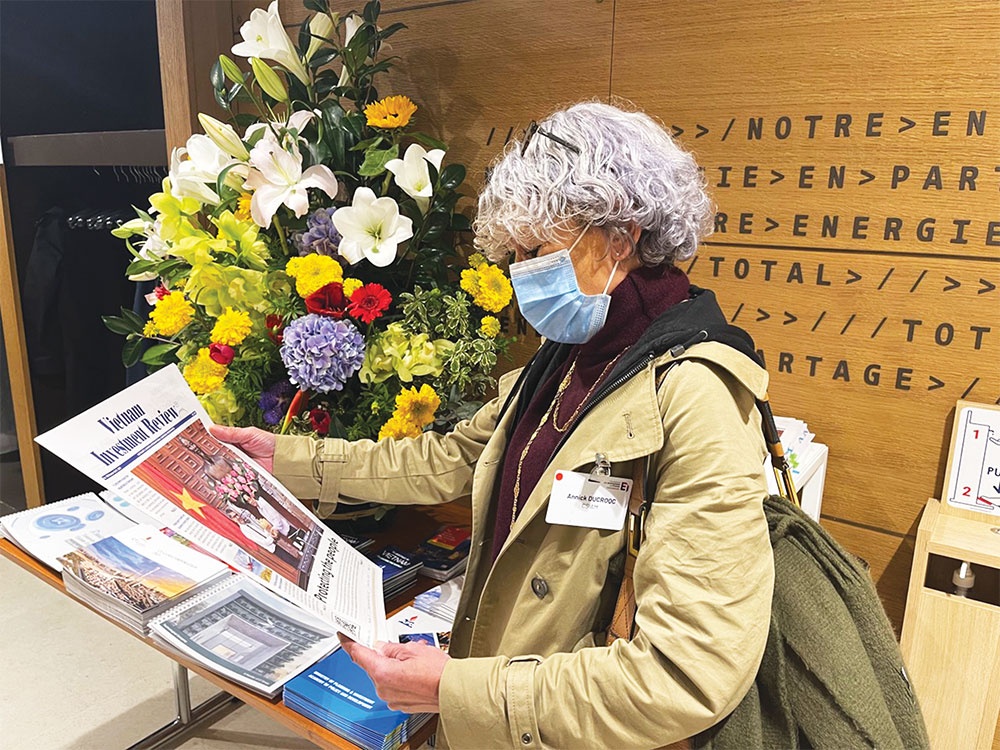Ensuring engagement and accuracy for VIR readers
Vietnam often changes faster than most countries, and it can be hard to keep up. In tandem, it is well known that most people have shorter attention spans compared to even a decade ago. With that, VIR wants to strive to be one of the best reads for anyone who picks up a copy.
 |
| Readers want the most up-to-date information possible to keep them hooked |
The easiest way to do that is by offering more engaging stories as soon as they begin.
VIR believes it is important to cover topics that are perhaps not a big priority elsewhere, and this is demonstrated through regular sections in the print newspaper on climate change, women’s empowerment, and sustainable energy.
We also publish original takes on issues like the labour market, imports and exports, retail, property, and finance and banking.
These are the initial building blocks to giving readers new and interesting stories. And along with the work of our reporters, VIR is also proud to publish expert analysis and informed opinion pieces from key personnel covering everything from the latest law updates to the arrival of 5G technology.
Printing those latest updates is one of the most important aspects of such a publication. The bulk of stories in a weekly newspaper should not be a history lesson - readers can get that elsewhere.
Story intros should be current, important, and reflect the potential road of travel moving into the near future. Why is this story in the newspaper this week and not a fortnight ago? How will the story likely evolve in the next few months? What are the players in the story actually doing now? And what do they think about it? Answering these provides much-needed colour instead of reeling off a tepid list of figures or past timelines.
On top of engaging stories, the next layer can involve more accuracy. English-language newspapers in Vietnam cater to people who are typically from nations with a rich history of journalism. Older readers may have read, or still do read, world-class articles from some of the best reporters in the world in their favourite publications back in their home country.
So when they spend the time to read something like VIR, not only should all their potential questions be answered as accurately as possible, but their intelligence should not be insulted either.
One of the first things I do when I get ready to edit a news story is to think of all the questions that a normal reader would have. Does the story make sense in terms of the timeline? Is there more than one side of the story? Why is one particular piece of info missing? More often than not, foreigners who know a little about journalism can read a story in Vietnam and immediately have questions as simple as “Why are there no quotes or first-hand accounts?” or “When did this actually happen?” If the reporter cannot answer these, the story is usually not good enough to print yet.
The next layer, for me, when it comes to better content is to ensure cleaner copy. Often, my work feels like doing word puzzles all day. But it is even more intricate than that. Not every sentence has to be perfect, but we can make them much easier to read a lot of the time.
Being concise and going for a “less is more” approach always works for me. People are more likely to enjoy reading a sentence if it is crisp and clean and does not include too many commas, dashes, brackets, figures, quote marks, and everything else. If the sentence still works without all of that, go for it. There is something satisfying about making a sentence 75 per cent shorter and it still saying the exact same thing.
Looking at the bigger picture, taking into account crisp sentences, accurate information, and interesting topics, the main thing is that readers get what they were looking for. If you pick up a newspaper you want to read something you have never read before. For VIR, we have the extra incentive of being able to help people and businesses connect.
Our stories and expert pieces may not only help a reader spark up an idea, but they can also offer up the chance for collaboration. VIR can encourage people to attend or take part in events like seminars or round tables. It may even encourage someone to create their own events.
Anything that can, in some little way, advance the prospects of business in Vietnam is a good thing and as long as VIR provides the platform to do so, the work is worth it.
What the stars mean:
★ Poor ★ ★ Promising ★★★ Good ★★★★ Very good ★★★★★ Exceptional
Related Contents
Latest News
More News
- Vietnamese businesses diversify amid global trade shifts (February 03, 2026 | 17:18)
- Consumer finance sector posts sharp profit growth (February 03, 2026 | 13:05)
- Vietnam and US to launch sixth trade negotiation round (January 30, 2026 | 15:19)
- NAB Innovation Centre underscores Vietnam’s appeal for tech investment (January 30, 2026 | 11:16)
- Vietnam moves towards market-based fuel management with E10 rollout (January 30, 2026 | 11:10)
- Vietnam startup funding enters a period of capital reset (January 30, 2026 | 11:06)
- Vietnam strengthens public debt management with World Bank and IMF (January 30, 2026 | 11:00)
- PM inspects APEC 2027 project progress in An Giang province (January 29, 2026 | 09:00)
- Vietnam among the world’s top 15 trading nations (January 28, 2026 | 17:12)
- Vietnam accelerates preparations for arbitration centre linked to new financial hub (January 28, 2026 | 17:09)

 Tag:
Tag:




















 Mobile Version
Mobile Version